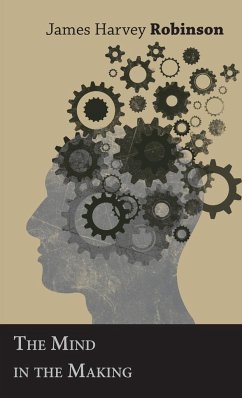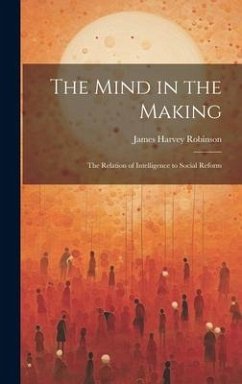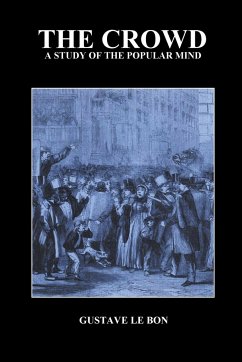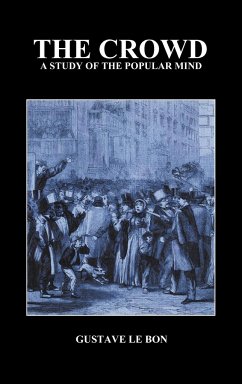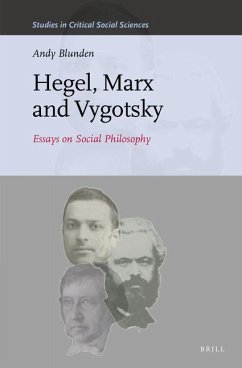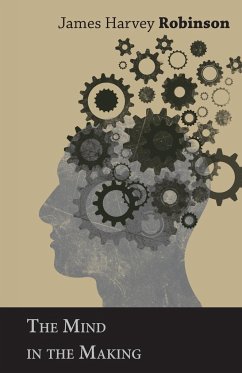
The Mind in the Making
Versandkostenfrei!
Versandfertig in 1-2 Wochen
27,99 €
inkl. MwSt.
Weitere Ausgaben:

PAYBACK Punkte
14 °P sammeln!
This vintage book contains a fascinating essay on the most important of all matters of human concern ¿ the human mind. Written in clear, accessible language and full of interesting exposition and thought-provoking ideas, this volume will appeal to those with an interest in the entirety of the human condition and civilization, and it would make for a worthy addition to any personal collection. The chapters of this volume include: 'On the Purpose of This Volume', 'Three Disappointed Methods of Reform', 'On Various Kinds of Thinking', 'Rationalization', 'How Creative Thought Transforms the World...
This vintage book contains a fascinating essay on the most important of all matters of human concern ¿ the human mind. Written in clear, accessible language and full of interesting exposition and thought-provoking ideas, this volume will appeal to those with an interest in the entirety of the human condition and civilization, and it would make for a worthy addition to any personal collection. The chapters of this volume include: 'On the Purpose of This Volume', 'Three Disappointed Methods of Reform', 'On Various Kinds of Thinking', 'Rationalization', 'How Creative Thought Transforms the World', 'Our Animal Heritage ¿ The Nature of Civilization', etcetera. James Harvey Robinson (1863 ¿ 1936) was an American historian who wrote 'The Ordeal of Civilization' (1926) and 'The Story of Our Civilization' (1934). This book is being republished in an affordable, modern edition complete with a new prefatory biography of the author.





